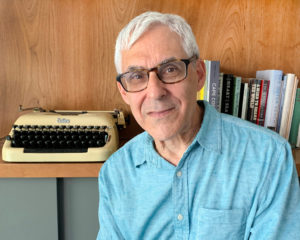The New York Times reported on Monday that 47 percent of Americans say it’s hard for them to know whether the information they encounter is true. Many people have simply stopped even trying to follow the news because it makes them feel “numb and disoriented, struggling to discern what is real in a sea of slant, fake, and fact.”
The authors of the Times story quoted a 50-year-old school administrator from West Virginia, who said, “There’s so much information that’s biased, that no one believes anything. There is so much out there and you don’t know what to believe, so it’s like there is nothing.”
This is pretty discouraging for a news junkie like me. Figuring out what to believe is how I happily spend a great deal of my time. I understand why people are turned off by the news these days, but the answer is not to stop believing that news has value.
I got excited this week when I read K.C. Myers’s story about the three finalists for the job of Provincetown town manager (see page 1). One of them, I learned, lives in Webster on Lake Chargoggagoggmanchauggagoggchaubunagungamaugg, which I once years ago spent many hours learning to pronounce. I was told back then that the name, in Nipmuc, means “You fish on your side, I’ll fish on my side, and no one will fish in the middle.” I believed it, of course.
That was before the internet. This week when I looked up the lake, which is said to have the longest name of any place in the U.S., I discovered that it has had many names over the years, and that the tongue-twistingly long one I knew was apparently invented, along with its supposed “meaning,” by Laurence J. Daly, editor of the Webster Times, around 1921.
So I had to revise my cherished belief about that crazy name based on this newly unearthed information. Does that bother me? Well, maybe a little. No one likes to find out that he has been broadcasting a false story for years. Now I have a new story, though, about a small-town newspaper editor, no less. What was he thinking? Was he trying to put Webster on the tourist map? Was he just having some fun?
For me, the fun part of newspaper work is digging around and trying to find out what actually happened and why. Sometimes you don’t know what to believe. And sometimes you discover things that lead you to change your mind about what you used to believe.
The Times article concludes that the loss of a shared sense of reliably believable news is causing people to avoid the news entirely. I’m happy to report that, based on the number of readers who have already subscribed to the Independent at least, that’s definitely not happening on the Outer Cape.




